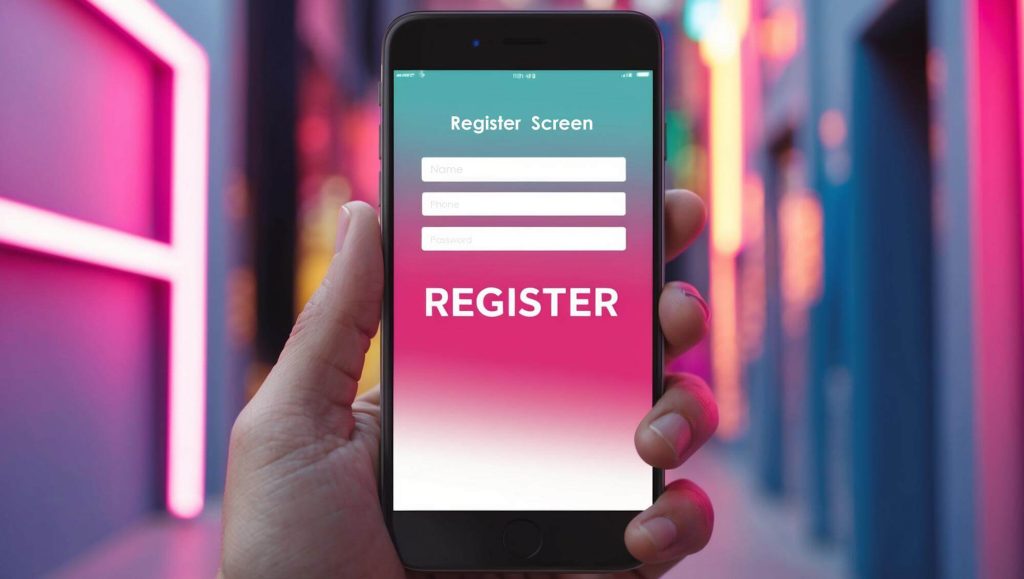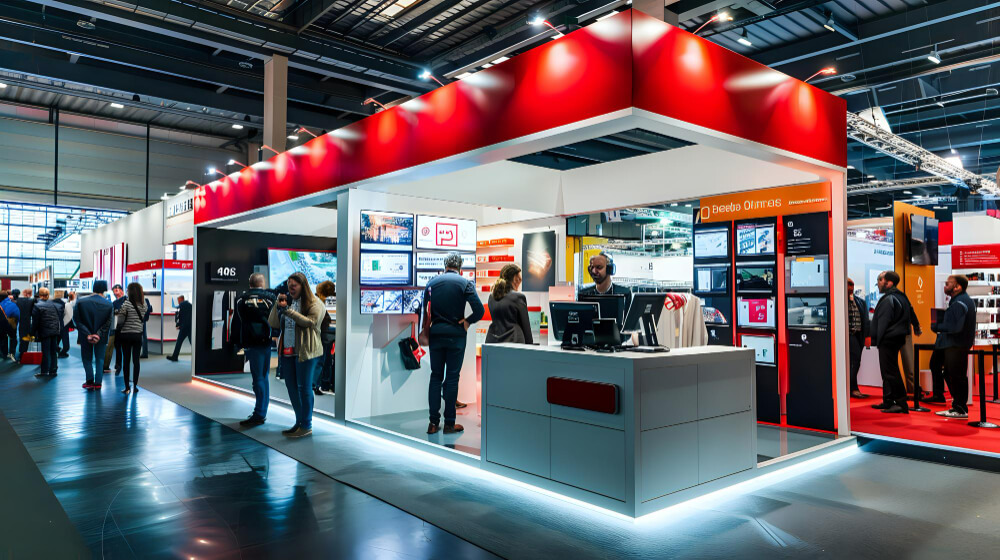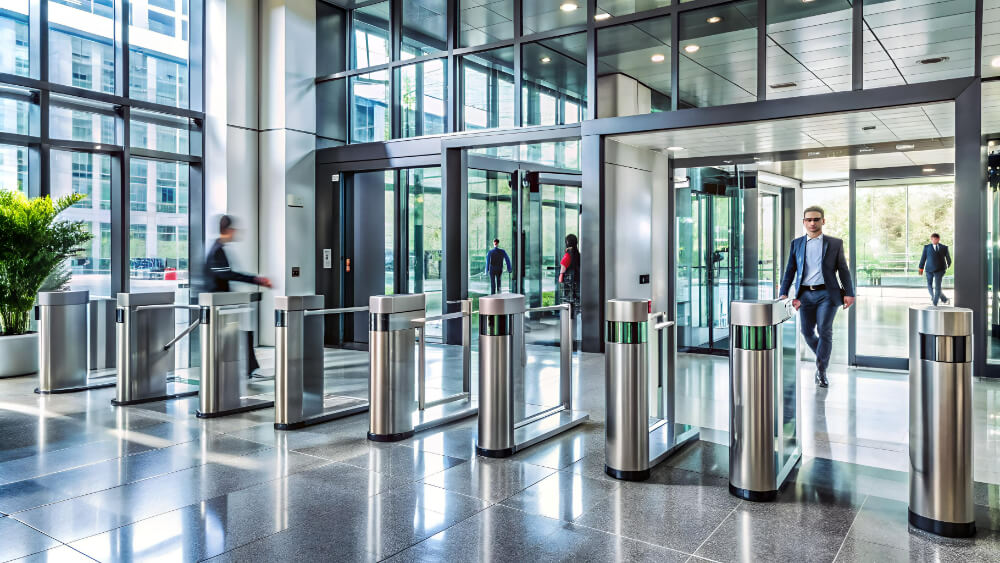As the event industry evolves, so will the event technology trends that are redefining how we plan and experience events. By 2025 innovations will take the whole attendance experience to new heights and even simplify event management. From digital tools to innovative solutions, this is a look forward inside event technology: how it will change the way event organizers and attendees brainstorm in the year 2025.
Table of Contents
Streamlined Registration & Ticketing: The Future of Event Onboarding
Registration and ticketing are the first points of contact for every event; they will be fast and user-friendly by 2025. Event registration systems traditional registration methods will be intelligent portals providing a seamless paperless experience for both organizer and participants.

Instant Digital Registration: No more waiting for long lines to event attendees; they will be able to register online and with digital tickets instantly issued, resulting in a greater reduction in waiting times and an overall improved experience.
QR Code Tickets: QR codes are going to become the new standard when it comes to ensuring that attendees will effortlessly have event tickets on their mobile devices so the entire process becomes quicker and more secure.
Personalized Event Badge Solutions: Attendees can now get customized event badges with their name, company, and role, which can be scanned at the different stations at the event. This is just to make it unique from the rest.
Self-Service Kiosks for Quick Registration: With the addition of self-service kiosks, one’s check-in can also happen so that visitors can start printing his or her personalized event badges from the place, which again reduces long queues associated with traditional events. This also increases convenience, particularly for larger events.
Seamless Payment Integration: Added integrated payment options on the registration platforms will allow attendees to immediately input their payments for tickets or any other event-related service while registering. Thus the payment will be clean and hassle-free, relieving the organizers from administrative hassles.
WhatsApp Automation: Real-Time Communication for Seamless Experiences
A successful event cannot escape effective communication. This makes WhatsApp automation an important event technology in 2025.

Automated Event Updates: On event day, the attendees will receive WhatsApp messages from organizers reminding them of their sessions, updating them on time changes, and finally letting them know about any last-minute changes. So everyone will know what’s happening and when.
Instant Assistance: With WhatsApp automation, attendees can get immediate answers to their queries by quickly contacting event personnel through WhatsApp.
Personalized Engagement: Personalized messaging using WhatsApp automated bots as per attendee preferences makes the event more enjoyable for attendees and increases their engagement level.
Virtual Meetings, Events & Expos: A Shift Toward Digital Engagement
Virtual events and meetings are here to stay, and the emerging event technology trends of 2025 go further to enhance the virtual experience completely. Meetings, expos, and webinars will be made more interactive and immersive for their respective attendees, offering a much richer experiential event.

Seamless Virtual Exhibitions:
Virtual Event platforms will afford users the opportunity to virtually walk-through booths digitally, greet exhibitors, and attend live-stream sessions all from anywhere in the world.
On-Demand Sessions:
As the event microsite now serves as virtually the main site for an event, attendees will easily access the recorded sessions to watch on their own time and not miss any key content.
Networking Opportunities:
The new reality of virtual networking comes complete with chat and video features that enable the attendees to really find and mingle with just the right people with whom their interests align.
Immersive Virtual Reality (VR) Experiences:
Virtual events will be adapting to using VR technologies for even more immersive experiences, so the audience can be put into a much more realistic scenario such that they move through spaces as if they truly existed there. These virtual tours could be exhibited in terms of product demos in 3D or interactive workshops whereby the audience could be engaged and learning happens.
Mobile Event Apps & Microsites: Personalization at Your Fingertips
Mobile event apps and event microsites will be at the center of everything related to events in 2025. Attendees will be connected with a personalized event experience as accessed by mobile devices.

Customizable Schedules: With mobile event apps, attendees can conveniently plan their days, choosing one session and taking advantage of all networking opportunities. How schedules will be changed will also be updated immediately.
Networking Features: The Attendees can use the application to connect with other people with similar interests, thus providing an avenue for creating meaningful networks that may eventually lead to valued collaborations.
Instant Access to Event Info: Whether it is session details, speaker data, or status reports on what is taking place, event microsites and mobile event apps will have it all available with the touch of your mobile device at your fingertips.
Push Notifications for Real-Time Alerts: Mobile event apps send push alerts to attendees about minute changes notified last minute, special announcements, or even VIP sessions happening, keeping participants in the loop with current affairs across the event.
Interactive Event Maps: Interactive venue maps will be introduced into mobile event applications to facilitate easier mapping of venues. This would help to guide attendees even with complex event spaces to find a session, exhibitor booth, or meeting room without skipping one of the important venues in the building.
Meeting & Matchmaking Platforms: Smarter Networking
Networking has always been a cornerstone activity at every event, and in 2025, it will become even easier through technology to reach the right person: AI-powered matchmaking platforms that would facilitate meaningful connections based on attendees’ data pulled on shared interests and business goals.
Personalized Recommendations: Via AI recommendations of people to meet, this should address any wasted opportunity for precious networking time.
Pre-Scheduled Meetings: Attendees will be able to pre-book their one-on-one meetings with their matches and make the best use of the time they have in the event.
Virtual Lounges: These platforms will have virtual lounges or meeting rooms to engage attendees in group discussions or one-on-one chats, thereby widening their networking opportunities.
Through mobile event apps and AI matchmaking, attendees can use these solutions to connect with the most relevant people.
Event Cashless Systems: Simplifying Transactions
Cashless payment systems are transforming the way transactions are conducted at events. As event technology in 2025 continues to evolve, cashless systems will be widely adopted, offering faster, more secure payment options.
Contactless Payments: Whether buying ticketing options, food, or merchandise, attendees will instead use mobile wallets or RFID wristbands for contactless purchases.
Pre-Paid Accounts: Many events will offer an account load option to ensure guests do not carry cash or cards with them during the event.
Tracking and Insights: The organizers can track the spending habits of attendees in real-time and allow them to see where they go from within the event.
Increased Convenience for Attendees: As most of the transactions will become cashless, the event experience will be more convenient or frictionless throughout, whether it’s the purchase of meals, activities, or items.
Streaming & Content Management: Elevating the Virtual Experience
With an increasing number of hybrid and virtual events, streaming and content management technology will not be an exception in 2025. There will be a need for finely developed streaming solutions from event organizers for the seamless experience of attendees in person or virtually.
Multi-Platform Streaming: Events streamed or broadcast over multiple platforms such as through social media, and websites, thus reaching maximum coverage and engagement.
On-Demand Access: It will be possible for attendees to access recordings of sessions and events from an on-demand basis even after the event has long since ended.
Interactive Content: Participants will access such streaming platforms with interactive features such as live polls, question and answer sections, and chat features to cover the absence of a live event during the actual session.
Check-In & Badging Solutions: Faster Access with Enhanced Security
One of the most significant trends in event technology in 2025 will be the evolution of event check-in systems. Gone will be the days of waiting in long lines to get inside an event. Attendees will enjoy much faster, secure access to the event with the new smarter check-in solutions.

QR Code Check-In: Just scan a QR code with your mobile device or event badge solution and boom, you get direct access to the event.
Personalized Badges: Custom event badges will be scanned at different event stations for seamless access. They will allow participants to personalize their badges with information like name, company, and role.
Real-Time Monitoring: Check-ins would allow the organizers to find out whether the event will proceed without any hold-ups.
Multi-Access Integration: Check-in solutions will also facilitate integration with more access points, such as different rooms, sessions, or VIP areas, to ensure a seamless flow of attendees to these locations.
Enhanced Security Features: Event check-in systems, along with biometric authentication via facial recognition, could greatly increase the level of protection against fraud or unauthorized access.
Turnstile Access & Facial Recognition: The Future of Event Security
Security is the prime concern as events become larger. In 2025, access control and facial recognition for events will play a very important role in making the events secure and accessible.

Turnstile Access Control: The different event areas will be restricted and controlled with entry as monitored by a turnstile to provide and make sure of an authorized audience entry.
Facial Recognition for Entry: Facial recognition technology for events will serve as an easy access point for intruders who eliminate the use of physical tickets for entry or identification, thereby reducing the possibility of fraudulent entry and creating a much more efficient process.
Enhanced Safety: These technologies will also improve the safety aspect further by making sure that restricted access given only to whom it applies cannot come through unauthorized persons.
Contactless Entry Experience: The turnstile access system is integrated with facial recognition for events will give participants a fast entry and contactless experience since they will not check in at long lines, thus improving their overall experience.
By integrating facial recognition for events and turnstile systems, event organizers will be able to manage access securely while providing a seamless entry experience for attendees.
Advanced-Data Analytics: Real-Time Insights for Event Success
Data analytics will continue to play a significant role in event management, offering real-time insights that help organizers optimize their event strategies.
Live Analytics: Organizers will have live data about whether the people attending have socialized, how well-known various sessions have turned out to be, and more: hence they may adjust the real-time setup.
Post-Event Reports: This type of analytical report composes a detail of all perspectives on attendees’ behavior at the event. Thus, it helps the event organizers judge how successful their activity is and to draw conclusions regarding improvements for future events.
Predictive Analytics: It allows event platforms to construct future-looking predictions regarding trends and behaviors, hence informing recommendations for better planning by event planners.
Conclusion
These event technologies morphing as we speak will continue to evolve all through the way we experience and organize events into the year 2025. From the event registration solutions, one goes on to the ones now using facial recognition for events, indeed some of the better advancements in technology would integrate best and crack processes into higher comfort levels for attendees and organizing these events. Event technology in 2025 will keep evolving over the years, and the event space will incorporate new tools and solutions that support this innovation while yielding better security and an increased level of attendee engagement.
Staying ahead of these event technology trends allows event organizers to ensure that their events remain current, powerful, and memorable for years to come.





















